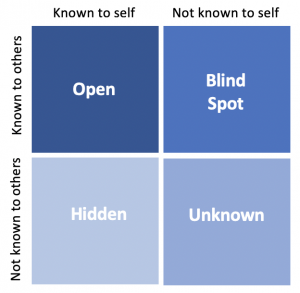by Claire Heath
Presentation by Renée Otmar at the IPEd conference.
Renée Otmar’s workshop before the IPEd conference on editing for sensitivity, diversity and inclusion offered lots of insights into how inclusion works and fails.
Renée said we will make mistakes, and shared a couple she has made when editing others’ work. But if we remain open, we can learn from our mistakes and do better work next time.
The idea is disarmingly simple. Putting it into practice is a lifelong work in progress.
Renée said that as we develop self-awareness, we begin to see our mistakes and get to a point where we see them before we make them — at least sometimes. A good place to start is to recognise that each of us has cognitive biases; we misinterpret people and things around us because of our subconscious errors in thinking.
These, Renée pointed out, include cultural norms, which come out of the beliefs and world view of the culture we live in. She put us through a nifty little demonstration of how readily people do this. She played a sequence of five brief soundscapes as someone with hearing loss might hear them. Because they were short and out of context, and some of the aural information was missing, it was difficult to understand what they were. I realised that how I tried to interpret them was way off when the snippet was of something from an unfamiliar culture.
It was a fine example of how easily we can inadvertently trap ourselves in our cognitive biases, even when we’re trying not to.

The Johari window
Some of what she discussed during the workshop reminds me of one pane of the Johari window: the part of yourself that you don’t know but others do. Trouble occurs when a client sees and is affected by a bias we may not even know we have.
How do we become more aware of the biases we’re ignorant of so that we minimise any hurt to our clients (and our reputation)? And meet our ethical and moral responsibilities in IPEd’s standards for editing practice?
Renée suggested we can combat our cultural conditioning and personal preferences by practising self-reflection and reflexivity. Reflective practice means undertaking one’s own critical review of a job once it is completed, to work out things that might have been done better, and to prevent mistakes happening next time. Reflexivity means finding strategies to question our own attitudes, thought processes, values, assumptions and prejudices, so that we might better understand our complex roles in relation to others.
Some editors already do this, thinking critically about a job once it is completed, to work out things that might have been done better, and to prevent mistakes happening next time.
She also recommended the book Blindspot: hidden biases of good people, by Mahzarin R Banaji and Anthony G Greenwald. Others at the workshop recommended Renée’s own book, Editing for sensitivity, diversity and inclusion. If you are a member of the Facebook group Secret Editors Business, you could check out the list of resources that Mark J Lock posted for group members on 19 April. (Mark gave the keynote presentation on culturally safe editing that ended the conference on a high note.)
The workshop was a rich exploration of inclusion. And it turned out to be a great warm-up for the conference, which featured many sessions on diverse aspects of inclusion.
I love coming away from a workshop with food for thought, and Renée has heaped my plate.
Claire Heath is a Brisbane-based freelance writer and editor with 30 years’ experience in different aspects of the industry.
